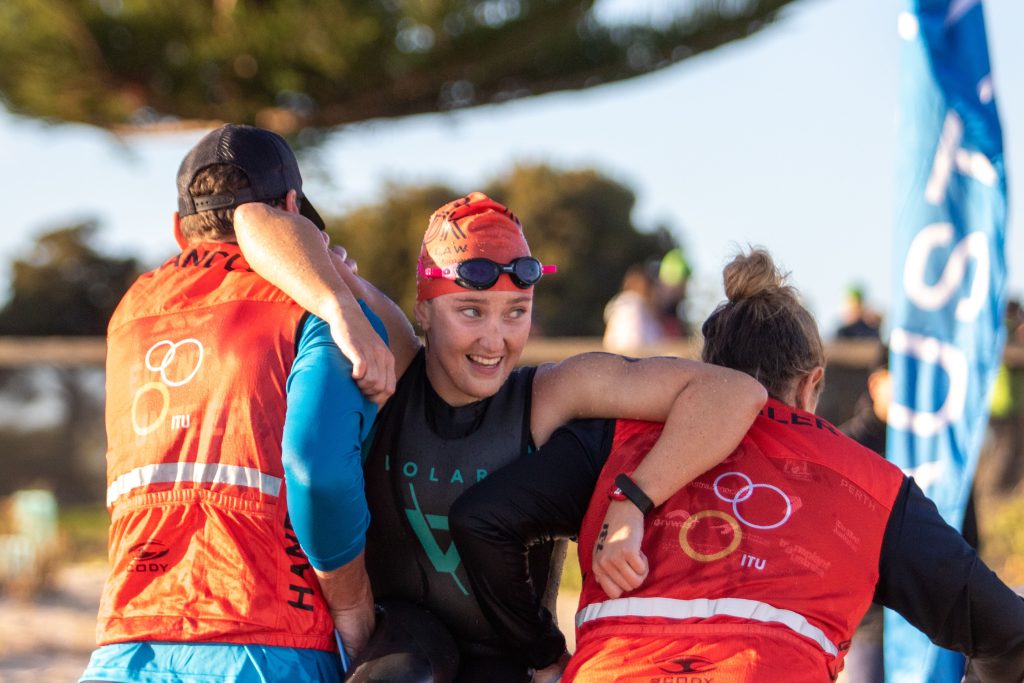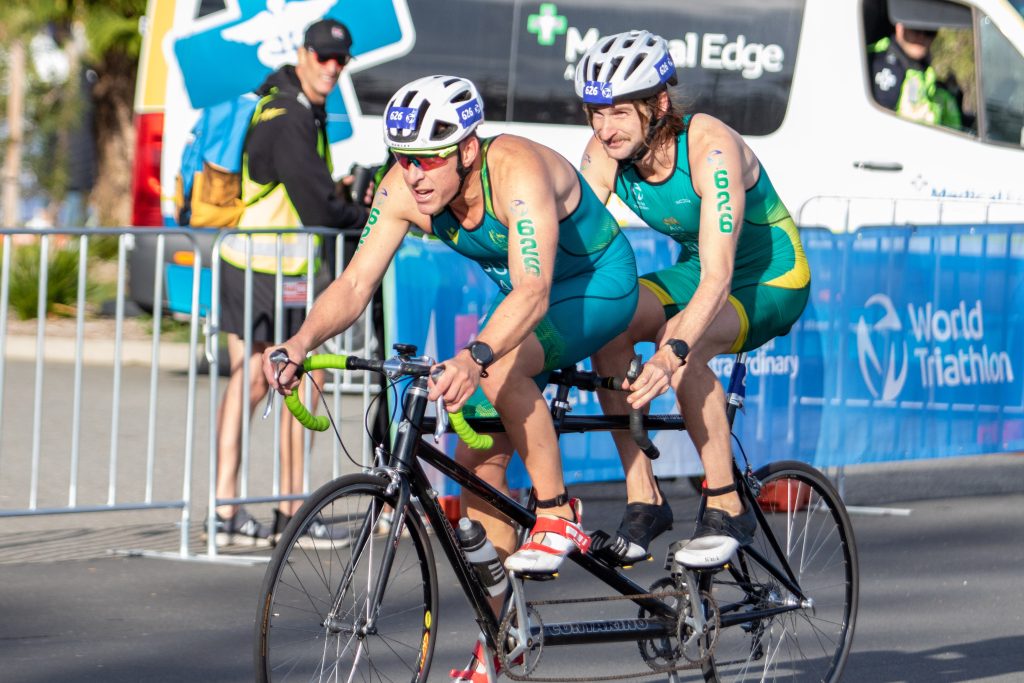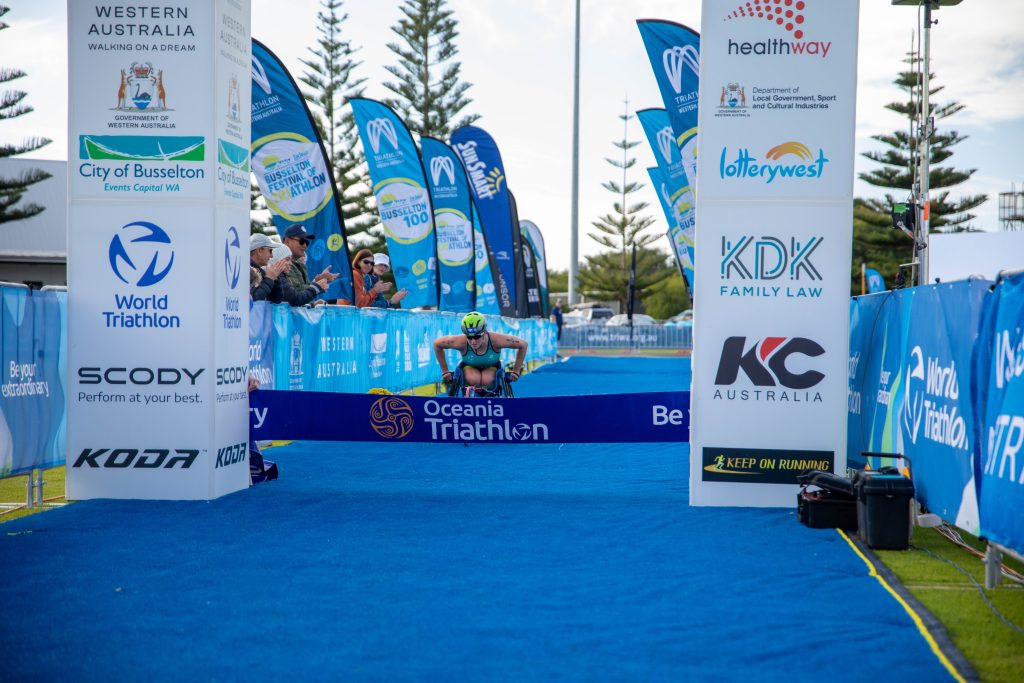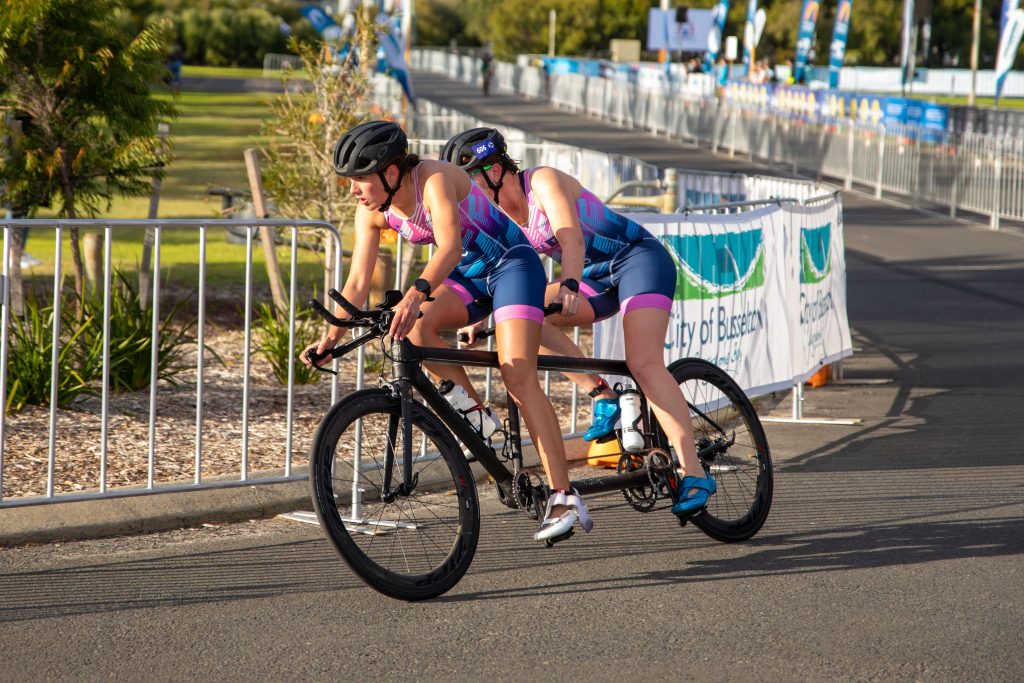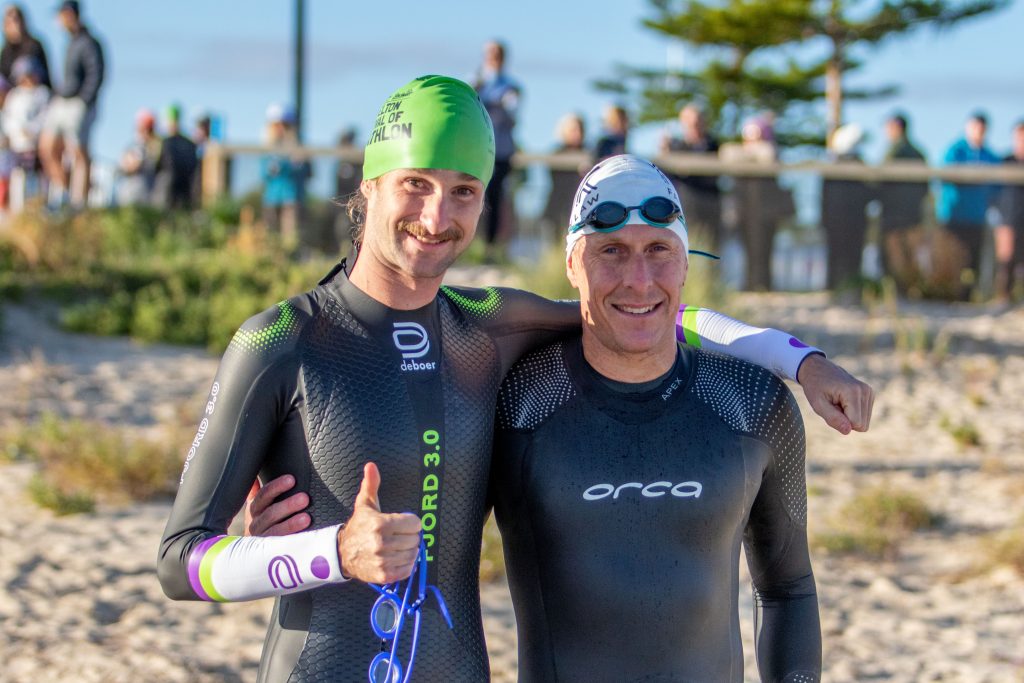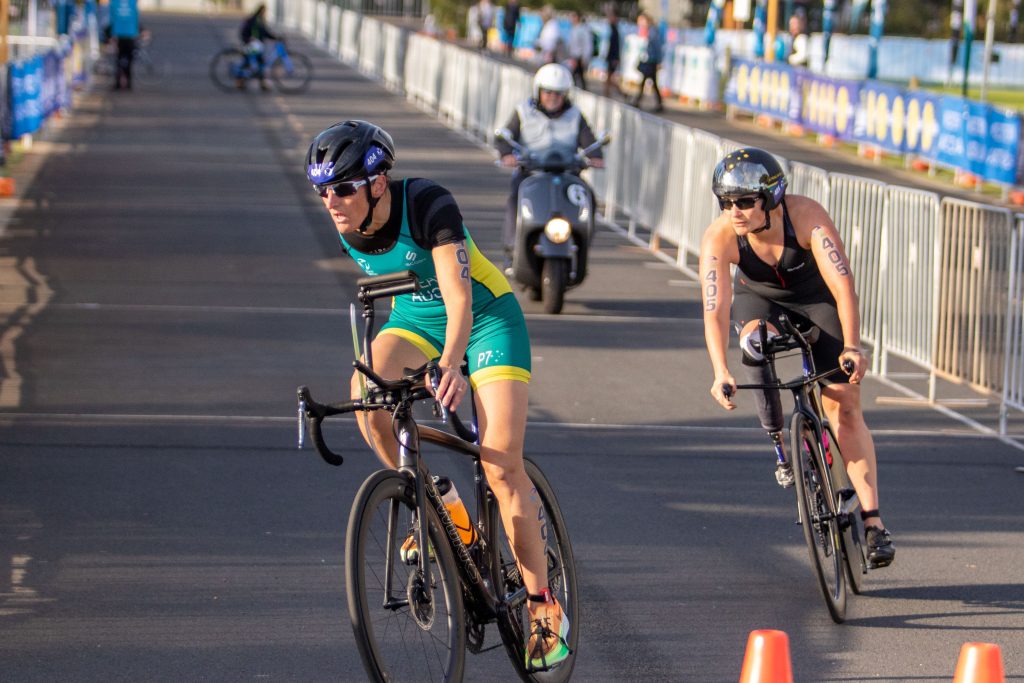

Triathlon WA is committed to supporting participants in para triathlon and multi-sport. The opportunities for getting involved in clubs and events is expanding and we are keen to support people where possible.
If you need help getting started or have any questions, please email admin@wa.triathlon.org.au.
1. WHAT IS PARA TRIATHLON?
Para-triathlon made its first appearance at the Paralympic Games at the 2016 Rio Games.
In formal Para-triathlon racing, such as at the Paralympics, athletes race over three disciplines: 750 metres of swimming, followed by 20 kilometres of cycling and 5 kilometres of running.
Depending on classification/disability type, an athlete may use a handcycle and wheelchair; a tandem bike and sighted guide, or standard equipment. Some athletes may require the use of leg or arm prostheses, however adaptive equipment is not permitted during the swim.
For more information on Para-triathlon Eligibility and How to Get Involved please see the Paralympics Australia Para-triathlon Information Sheet.
2. WHO CAN PARTICIPATE IN PARA TRIATHLON?
Para triathlon is open to athletes with a physical or vision impairment.
This may include things like loss of limbs, muscle weakness or impaired muscle power, coordination impairments (hypertonia, ataxia, athetosis), restricted joint movement, or impairments of the eye (including conditions caused by things such as albinism, macular degeneration, cone rod dystrophy or retinitis pigmentosa).
Para triathletes are classified (given a category to race under) that most fairly places them with others of a similar ability.
Read more about para triathlon.
If you are an athlete with a physical or visual impairment but are not interested in seeking formal classification, you can still race locally. Classified athletes may also race locally.
Some athletes who could race para triathlon instead prefer to race regular triathlons in their normal age group with other athletes who do not have disabilities. For example, an athlete with a minor limb difference may feel comfortable racing against able bodied competitors, instead of as a para.
Unfortunately at this stage, para triathlon does not include athletes with an intellectual disability (ID). This is a separate category that we can help with on a local racing level. Athletes with intellectual disabilities can absolutely do triathlon. Feel free to email admin@wa.triathlon.org.au to learn more.
3. WHAT IS CLASSIFICATION?
Classification is at the centre of Para-sport. It determines the eligibility and groupings of Para-athletes for competition, based on their impairments. As each Para-sport requires athletes to use their bodies differently, classification systems are different in each sport.
Note: Classification is only required for formal sport competition, not for social sport or recreation. You’ll only need a formal classification if you intend to compete at a higher level (e.g. National or International events).
Learn more about classification.
4. WHERE CAN I BUY OR HIRE EQUIPMENT?
Where to buy equipment is specific to which type of equipment you need. You’ll be best to speak to experts in disability sport, such as the team at Rebound WA. Rebound WA have a service that allows people to try out or loan para triathlon equipment. Give them a call on (08) 6143 5800 or email admin@reboundwa.com.
There are also annual rounds of equipment funding from Paralympics Australia that can assist with the cost of purchasing your own equipment.
5. WHERE CAN I FIND MORE INFORMATION?
If you would like more information about how to get involved with para triathlon in WA, please email us at admin@wa.triathlon.org.au.
Rebound WA – www.reboundwa.com
Paralympics Australia – www.paralympic.org.au
World Triathlon – www.triathlon.org/paratriathlon
